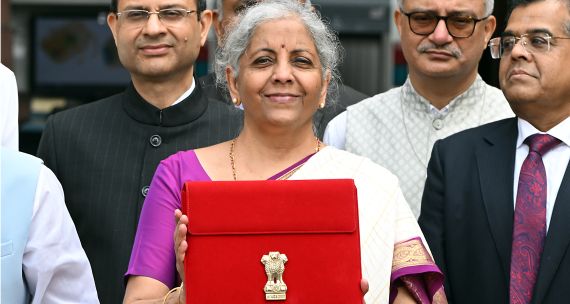The Takeaway
India’s national-level education council’s decision to delete key passages from school textbooks is sounding alarm bells over the erasure of the country’s multicultural and secular history. Observers and the opposition have suggested the changes are politically motivated and that the ruling Bharatiya Janata Party-led (BJP) Indian government is using education to promote a monotheistic identity for India. Meanwhile, these revisionist tactics are being called out for isolating religious minorities and threatening the country’s secular fabric and ideological tolerance.
In Brief
In a decision in early April, India’s National Council of Educational Research and Training (NCERT) revised its history books for the 2023-24 academic year and selectively dropped chapters concerning critical parts of the 300-year history of India’s Mughal era, among other sections on popular movements and challenges to India’s democracy. The NCERT books are widely used by most national and state education boards, including the Central Board of Secondary Education.
Implications
Some 255 million students were enrolled in Indian schools in 2021-22, according to the country’s education ministry. NCERT, an autonomous organization established by the Indian government in 1961, is the official body responsible for creating and providing textbooks to most of these students.
While India adheres to a state-run public education curriculum, education became a “concurrent list” subject in 1976, with the 42nd amendment to the Indian Constitution ensuring that central and state governments share financial and administrative responsibilities for the sector. The Indian government has made several attempts to rejig the national curriculum, most notably when former prime minister Atal Bihari Vajpayee endorsed the rewriting of textbooks in 2001, a move seen by some opposition members as “blatantly communal.” After the defeat of Vajpayee’s BJP-led NDA government in 2004, the Indian National Congress-led United Progressive Alliance introduced the National Curriculum Framework in 2005 to ‘de-saffronize,’ or revise BJP changes made to, the NCERT textbooks.
Almost a decade later, NCERT textbooks have gone through three different phases of revision under the current Hindu-dominant BJP government. The first round, termed “review” in 2017, emphasized the need to update textbooks to reflect contemporary events. NCERT made 1,334 changes across all 182 of its books. The following year, NCERT initiated a second round of revisions called “textbook rationalization” to decrease the burden on students by reducing the syllabus at the request of then-education minister Prakash Javadekar.
In its third round of textbook rationalizations for the 2022-23 academic year, NCERT has made some sweeping changes to the curriculum. With more changes to come in the 2023-24 academic year, the official reason for the latest rounds of revisions is to further reduce student workloads, particularly in the aftermath of the COVID-19 pandemic in India. However, many experts note that ‘pandemic fatigue’ is better remedied through grassroots approaches like access to better mental health support and a more generalized reduction in academic workloads.
Critics of these curriculum changes suggest a recurring pattern by the BJP-led Indian government as it attempts to promote a monocultural, Hindu-centric view of India’s past. The categorical move of deleting chapters related to the Mughal empire has been widely criticized as an attempt to obscure ‘Muslim influence’ on India and a way for the BJP government to shore up votes ahead of the 2024 Indian general elections.
While the BJP-led central government’s 2020’s National Education Policy claimed to promote holistic, interdisciplinary learning, these erasures of critical elements of Indian history raise the spectre of possible long-term societal impacts, including knowledge gaps among young students. In response to the government’s move, nearly 250 historians and academics issued a public statement opposing and criticizing NCERT’s move, demanding “the deletions be immediately withdrawn.”
What’s Next
- Knowledge gaps emerge — and futures at risk
With more than 250 million young people, India has the world’s largest adolescent population. Weighing the potential long-term impacts of targeted erasures of history on young students is crucial. While it is normal for political parties to adjust education policies during their tenure, these wholesale erasures may contribute to crucial knowledge gaps around South Asian history, development, and even politics — threatening to unravel India’s multicultural social fabric in favour of a monocultural bias.
- Indian students abroad may be at disadvantage
Also worth considering is the possible impacts that limiting historical education may have on the higher education of young Indians, particularly those aiming to study abroad. If censored historical narratives become part of the collective public consciousness, critics agree it raises broader concerns for the integrity and future of South Asian scholarship.
- Rewriting history ‘commonplace’ in South Asia
In the 1970s, Pakistan, under then-president Muhammad Zia-ul-Haq, attempted to cope with the secession of East Pakistan (modern-day Bangladesh) with a nation-building project. Under the project, textbooks were revised, ideological courses on Pakistan Studies and Islamiat were made mandatory, and Sunni orthodox ideologies were promoted. It marked Pakistan’s move away from its multicultural discourse of the past. And in Bangladesh, depending on which major party was in power, the claim over the country’s history oscillated between defining Sheikh Mujibur Rahman or Ziaur Rahman, both former presidents and key leaders of the two national parties, as the founding father of the country.
• Produced by CAST's South Asia team: Dr. Sreyoshi Dey (Program Manager); Prerana Das (Analyst); Suyesha Dutta (Analyst); and Silvia Rozario (Analyst).




